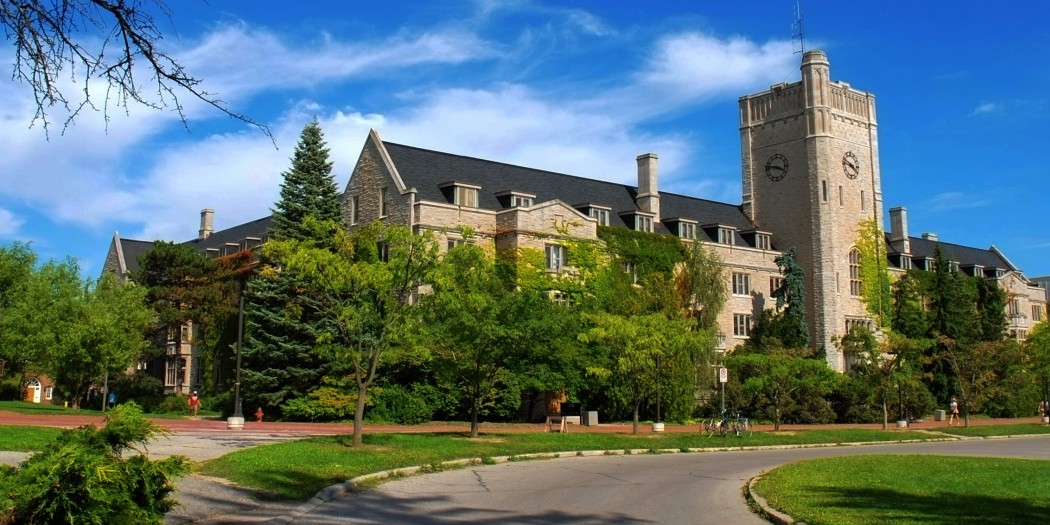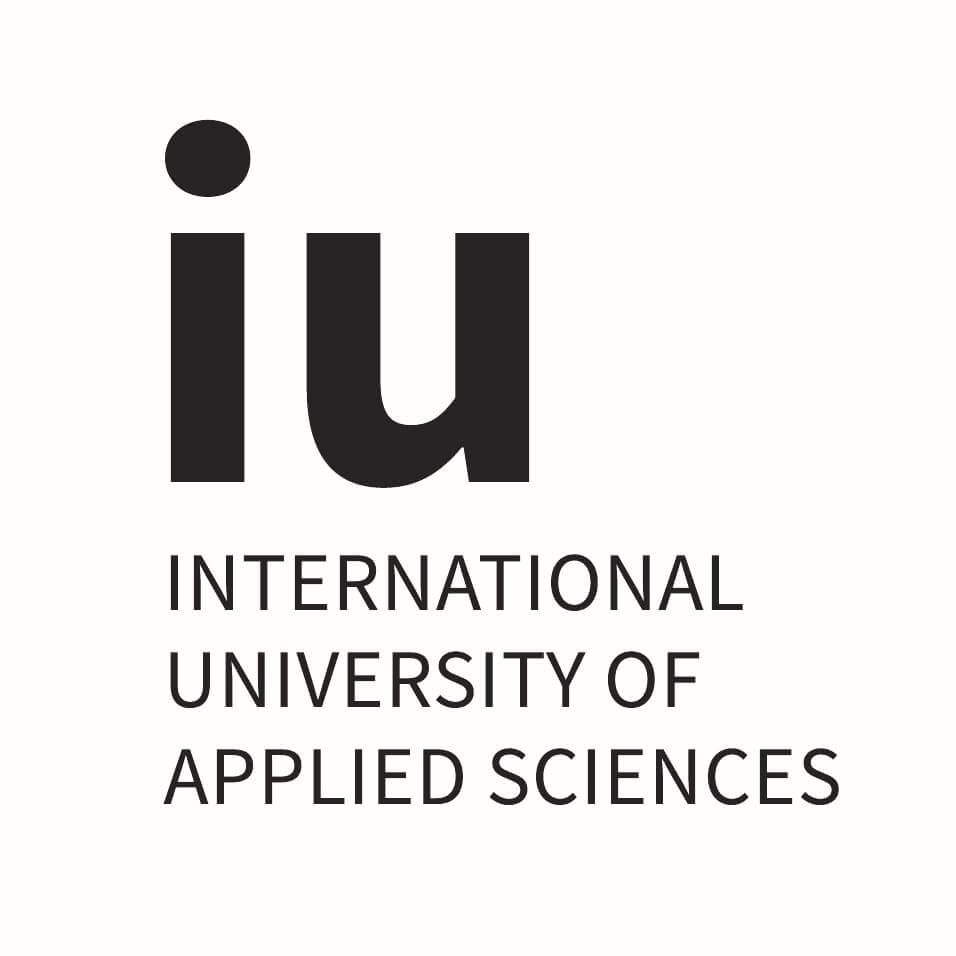UNIV*6080 Computational Thinking for Artificial Intelligence Fall Only [0.25]
This course will provide students with an overview of the mathematical and computational foundation that is required to undertake artificial intelligence and machine learning research. Students will also gain an understanding of the historical context, breadth, and current state of the field. Students are expected to have already taken undergraduate courses in probability & statistics, calculus, linear algebra, and data structures & algorithms (STAT*2120, MATH*1210, ENGG*1500, and CIS*2520, or equivalents).
Offering(s): Offered through Distance Education format only.
Department(s): Dean's Office, College of Engineering and Physical Sciences
Location(s): Guelph
UNIV*6090 Artificial Intelligence Applications and Society Unspecified [0.50]
This multidisciplinary, team-taught course provides an in-depth study of how artificial intelligence methodologies can be applied to solve real-world problems in different fields. Students will work in groups to propose solutions whilst considering social and ethical implications of artificial intelligence technologies.
Prerequisite(s): UNIV*6080
Restriction(s): Restricted to students in the collaborative specialization in Artificial Intelligence
Department(s): Dean's Office, College of Engineering and Physical Sciences
Location(s): Guelph
Elective Core
CIS*6020 Artificial Intelligence Unspecified [0.50]
An examination of Artificial Intelligence principles and techniques such as: logic and rule based systems; forward and backward chaining; frames, scripts, semantic nets and the object-oriented approach; the evaluation of intelligent systems and knowledge acquisition. A sizeable project is required and applications in other areas are encouraged.
Department(s): School of Computer Science
Location(s): Guelph
ENGG*6500 Introduction to Machine Learning Unspecified [0.50]
The aim of this course is to provide students with an introduction to algorithms and techniques of machine learning particularly in engineering applications. The emphasis will be on the fundamentals and not specific approach or software tool. Class discussions will cover and compare all current major approaches and their applicability to various engineering problems, while assignments and project will provide hands-on experience with some of the tools.
Department(s): School of Engineering
Location(s): Guelph
STAT*6801 Statistical Learning Unspecified [0.50]
Topics include: nonparametric and semiparametric regression; kernel methods; regression splines; local polynomial models; generalized additive models; classification and regression trees; neural networks. This course deals with both the methodology and its application with appropriate software. Areas of application include biology, economics, engineering and medicine.
Department(s): Department of Mathematics and Statistics
Location(s): Guelph
Complementary AI-related
BINF*6970 Statistical Bioinformatics Winter Only [0.50]
This course presents a selection of advanced approaches for the statistical analysis of data that arise in bioinformatics, especially genomic data. A central theme to this course is the modelling of complex, often high-dimensional, data structures.
Offering(s): Annually
Restriction(s): Restricted to Bioinformatics students.
Department(s): Dean's Office, College of Biological Science
Location(s): Guelph
CIS*6050 Neural Networks Unspecified [0.50]
Artificial neural networks, dynamical recurrent networks, dynamic input/output sequences, communications signal identification, syntactic pattern recognition.
Offering(s): Odd-numbered years
Department(s): School of Computer Science
Location(s): Guelph
CIS*6060 Bioinformatics Unspecified [0.50]
Data mining and bioinformatics, molecular biology databases, taxonomic groupings, sequences, feature extraction, Bayesian inference, cluster analysis, information theory, machine learning, feature selection.
Offering(s): Odd-numbered years
Department(s): School of Computer Science
Location(s): Guelph
CIS*6070 Discrete Optimization Unspecified [0.50]
This course will discuss problems where optimization is required and describes the most common techniques for discrete optimization such as the use of linear programming, constraint satisfaction methods, and genetic algorithms.
Offering(s): Odd-numbered years
Department(s): School of Computer Science
Location(s): Guelph
CIS*6080 Genetic Algorithms Unspecified [0.50]
This course introduces the student to basic genetic algorithms, which are based on the process of natural evolution. It is explored in terms of its mathematical foundation and applications to optimization in various domains.
Offering(s): Odd-numbered years
Department(s): School of Computer Science
Location(s): Guelph
CIS*6120 Uncertainty Reasoning in Knowledge Representation Unspecified [0.50]
Representation of uncertainty, Dempster-Schafer theory, fuzzy logic, Bayesian belief networks, decision networks, dynamic networks, probabilistic models, utility theory.
Offering(s): Odd-numbered years
Department(s): School of Computer Science
Location(s): Guelph
CIS*6160 Multiagent Systems Unspecified [0.50]
Intelligent systems consisting of multiple autonomous and interacting subsystems with emphasis on distributed reasoning and decision making. Deductive reasoning agents, practical reasoning agents, probabilistic reasoning agents, reactive and hybrid agents, negotiation and agreement, cooperation and coordination, multiagent search, distributed MDP, game theory, and modal logics.
Offering(s): Odd-numbered years
Department(s): School of Computer Science
Location(s): Guelph
CIS*6170 Human-Computer Interaction Unspecified [0.50]
This course concentrates on the theoretical and practical issues related to the design and study of interactive technologies for human use. Topics include: general principles of design, qualitative and quantitative research methods, prototyping techniques, theoretical issues underlying designing to individuals and groups, and ethical issues related to conducting research involving humans.
Offering(s): Odd-numbered years
Department(s): School of Computer Science
Location(s): Guelph
CIS*6180 Analysis of Big Data Unspecified [0.50]
This course introduces software tools and data science techniques for analyzing big data. It covers big data principles, state-of-the-art methodologies for large data management and analysis, and their applications to real-world problems. Modern and traditional machine learning techniques and data mining methods are discussed and ethical implications of big data analysis are examined. May be offered in conjunction with DATA*6300.
Offering(s): Odd-numbered years
Restriction(s): Credit may be obtained for only one of CIS*6180 or DATA*6300
Department(s): School of Computer Science
Location(s): Guelph
CIS*6190 Machine Learning for Sequential Data Processing Unspecified [0.50]
This course emphasizes machine learning for sequential data processing. It covers common challenges and pre-processing techniques for sequential data such as text, biological sequences, and time series data. Students are exposed to machine learning techniques, including classical methods and more recent deep learning models, so that they obtain the background and skills needed to confront real-world applications of sequential data processing. May be offered in conjunction with DATA*6400.
Offering(s): Odd- numbered years
Restriction(s): Credit may be obtained for only one of CIS*6190 or DATA*6400
Department(s): School of Computer Science
Location(s): Guelph
CIS*6320 Image Processing Algorithms and Applications Unspecified [0.50]
Brightness transformation, image smoothing, image enhancement, thresholding, segmentation, morphology, texture analysis, shape analysis, applications in medicine and biology.
Offering(s): Odd-numbered years
Department(s): School of Computer Science
Location(s): Guelph
CIS*6420 Soft Computing Unspecified [0.50]
Neural networks, artificial intelligence, connectionist model, back propagation, resonance theory, sequence processing, software engineering concepts.
Offering(s): Odd-numbered years
Department(s): School of Computer Science
Location(s): Guelph
ENGG*6100 Machine Vision Unspecified [0.50]
Computer vision studies how computers can analyze and perceive the world using input from imaging devices. Topics covered include image pre-processing, segmentation, shape analysis, object recognition, image understanding, 3D vision, motion and stereo analysis, as well as case studies.
Department(s): School of Engineering
Location(s): Guelph
ENGG*6140 Optimization Techniques for Engineering Unspecified [0.50]
This course serves as a graduate introduction into combinatorics and optimization. Optimization is the main pillar of Engineering and the performance of most systems can be improved through intelligent use of optimization algorithms. Topics to be covered: Complexity theory, Linear/Integer Programming techniques, Constrained/Unconstrained optimization and Nonlinear programming, Heuristic Search Techniques such as Tabu Search, Genetic Algorithms, Simulated Annealing and GRASP.
Department(s): School of Engineering
Location(s): Guelph
ENGG*6570 Advanced Soft Computing Unspecified [0.50]
Neural dynamics and computation from a single neuron to a neural network architecture. Advanced neural networks and applications. Soft computing approaches to uncertainty representation, multi-agents and optimization.
Prerequisite(s): ENGG*4430
Department(s): School of Engineering
Location(s): Guelph
MATH*6020 Scientific Computing Unspecified [0.50]
This course covers the fundamentals of algorithms and computer programming. This may include computer arithmetic, complexity, error analysis, linear and nonlinear equations, least squares, interpolation, numerical differentiation and integration, optimization, random number generators, Monte Carlo simulation; case studies will be undertaken using modern software.
Department(s): Department of Mathematics and Statistics
Location(s): Guelph
MATH*6021 Optimization I Unspecified [0.50]
A study of the basic concepts in: linear programming, convex programming, non-convex programming, geometric programming and related numerical methods.
Department(s): Department of Mathematics and Statistics
Location(s): Guelph
MATH*6051 Mathematical Modelling Unspecified [0.50]
The process of phenomena and systems model development, techniques of model analysis, model verification, and interpretation of results are presented. The examples of continuous or discrete, deterministic or probabilistic models may include differential equations, difference equations, cellular automata, agent based models, network models, stochastic processes.
Department(s): Department of Mathematics and Statistics
Location(s): Guelph
PHIL*6400 Ethics of Data Science Unspecified [0.50]
A study of the philosophical implications (ethical, legal, social, political, epistemological, etc.) of recent developments in data science, artificial intelligence, and machine learning.
Department(s): Department of Philosophy
STAT*6721 Stochastic Modelling Unspecified [0.50]
Topics include the Poisson process, renewal theory, Markov chains, Martingales, random walks, Brownian motion and other Markov processes. Methods will be applied to a variety of subject matter areas.
Department(s): Department of Mathematics and Statistics
Location(s): Guelph
STAT*6821 Multivariate Analysis Unspecified [0.50]
This is an advanced course in multivariate analysis and one of the primary emphases will be on the derivation of some of the fundamental classical results of multivariate analysis. In addition, topics that are more current to the field will also be discussed such as: multivariate adaptive regression splines; projection pursuit regression; and wavelets. Offered in conjunction with STAT*4350. Extra work is required for graduate students.
Restriction(s): Credit may be obtained for only one of STAT*4350 or STAT*6821
Department(s): Department of Mathematics and Statistics
Location(s): Guelph
STAT*6841 Computational Statistical Inference Unspecified [0.50]
This course covers Bayesian and likelihood methods, large sample theory, nuisance parameters, profile, conditional and marginal likelihoods, EM algorithms and other optimization methods, estimating functions, Monte Carlo methods for exploring posterior distributions and likelihoods, data augmentation, importance sampling and MCMC methods.
Department(s): Department of Mathematics and Statistics
Location(s): Guelph
Undergraduate Complementary AI-related Courses
Course List
Code Title Credits
ENGG*4430 Neuro-Fuzzy and Soft Computing Systems 0.50
ENGG*4460 Robotic Systems 0.50
STAT*4000 Statistical Computing 0.50
Search calendar
Search calendar
Submit search PRINT OPTIONS
Calendar PDFs
Undergraduate Calendar
Toggle Undergraduate Calendar
Guelph-Humber Calendar
Toggle Guelph-Humber Calendar
Associate Diploma Calendar
Toggle Associate Diploma Calendar
Graduate Calendar
Toggle Graduate Calendar
Disclaimer
Introduction
Learning Outcomes
I. Schedule of Dates
Toggle I. Schedule of Dates
II. General Regulations
Toggle II. General Regulations
III. General Information
Toggle III. General Information
IV. Degree Regulations
Toggle IV. Degree Regulations
V. Other Study Options
VI. Procedures
VII. University Courses
VIII. Fees
IX. Graduate Programs
Toggle IX. Graduate Programs
X. Collaborative Specializations
Toggle X. Collaborative Specializations
Artificial Intelligence
International Development Studies
Neuroscience
One Health
Regenerative Medicine
Sexualities, Genders and Bodies
Toxicology
XI. International, Indigenous, Cultural Diversity, Faith and Spirituality, and LGBTQ2IA+ Support
XII. Graduate Awards & Financial Assistance
XIII. Administration & Faculty
Toggle XIII. Administration & Faculty
XIV. Course Descriptions
Toggle XIV. Course Descriptions
Search Courses
Toggle Search Courses
Show less












